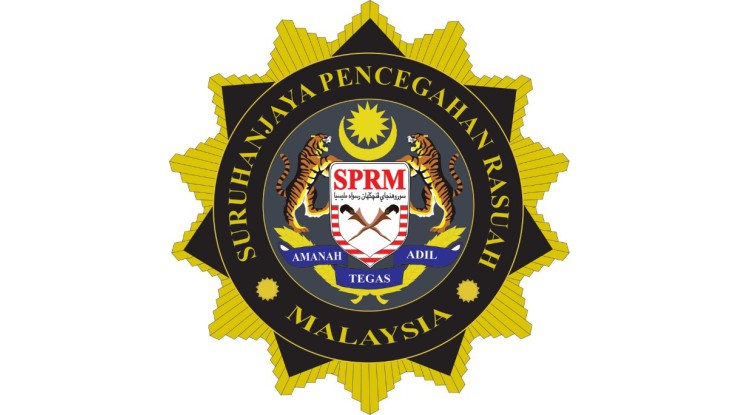Malaysian ~ Anti Corruption Commission
- Mon, 3 April 2023

In early 1959, Malaysia's (then Malaya) efforts to combat corruption were carried out by two entities, respectively focusing on investigations and prevention. Investigations on corruption cases were tasked to the Special Crimes Unit of the Criminal Investigation Department of the Royal Malaysian Police while an Anti-Corruption Agency was set-up in the Prime Minister’s Department to manage the aspect on prevention. Matters related to prosecution were under the purview of the Attorney General's Chambers.
In view of the fact that anti-corruption activities were then carried out by three different agencies, the Government decided to consolidate the task of investigation, prevention and prosecution under one umbrella by setting-up the Anti-Corruption Agency (ACA) in 1967 in accordance with the Anti-Corruption Act 1967. In 1973, the ACA changed its name to the National Bureau of Investigations (NBI) in accordance with the passing of the NBI Act 1973, becoming a full fledged department under the Home Ministry and with greater powers to investigate corruption cases including those of national interest. Subsequently, in a move to specialise the anti-corruption body in terms of its roles and functions, NBI was re-named back to ACA in 1982 with the passing of the ACA Act 1982 thus making ACA as a single and special entity in fighting corruption in Malaysia. Then, in 1997, the Parliament passed the Anti-Corruption Act 1997 to empower the role of the Anti-Corruption Agency as the nation's anti-corruption enforcement agency.
In 2008, the Parliament and the Government unanimously approved the formation of an independent anti-corruption commission to be known as the Malaysian Anti-Corruption Commission (MACC) and replacing the ACA Act 1997to the MACC Act 2009.
The MACC Act 2009 came to effect on 1 January 2009 which led to the official establishment of the MACC as an independent, transparent and professional body to effectively and efficiently manage the nation’s anti-corruption efforts.
In moving towards convincing the public of the MACC’s independence, transparency and professionalism, a ‘Check and Balance Mechanism’ was created through the formation of a five panel independent body to closely and constantly monitor the functions of the MACC. This 'check and balance mechanism' comprises of the Anti-Corruption Advisory Board (ACAB), the Special Committee on Corruption (SCC), the Complaints Committee (CC), the Operations Review Panel (ORP) and the Consultation and Corruption Prevention Panel (CCPP) that functions to advise as well as to ensure that the functions and roles of the MACC are implemented efficiently, effectively, independently, with transparency and professionally.
Members of these bodies represent the general public and comprise of senior ex-government officials, politicians (government and opposition), professionals from the business and corporate sector, academicians, lawyers and well respected individuals.
Functions of the Malaysian Anti-Corruption Commission are provided under Section 7 Malaysian Anti-Corruption Commission Act 2009 as follows:
- To receive and consider any report of the commission of an offence under this Act and investigate such of the reports as the Chief Commissioner or the officers consider practicable;
- To detect and investigate:-
o Any suspected offence under Act 2009;
o Any suspected attempt to commit any offence under Act 2009; and
o Any suspected conspiracy to commit any offence under this Act;
3. To examine the practices, systems and procedures of public bodies in order to facilitate the discovery of offences under this Act and to secure
the revision of such practices, systems or procedures as in the opinion of the Chief Commissioner may be conducive to corruption;
4. To instruct, advise and assist any person, on the latter’s request, on ways in which corruption may be eliminated by such person;
5. To advise heads of public bodies of any changes in practices, systems or procedures compatible with the effective discharge of the duties of
the public bodies as the Chief Commissioner thinks necessary to reduce the likelihood of the occurrence of corruption;
6. To educate the public against corruption; and
7. To enlist and foster public support against corruption
Vision
• To create a corrupt-free Malaysian society based on high spiritual and moral values.
• To make the MACC a par excellence and professional anti-corruption agency.
Mission
• To eradicate corruption, abuse of power and malpractice in Malaysia.
• To concertedly and continuously strengthen integrity and enhance expertise through human resources development programmes.
Objectives
• To incessantly eradicate all forms of corruption, abuse of power and malpractice.
Source==> Malaysian Anti-Corruption Commission(MACC)
Website Link ==> Malaysian (MACC)








/Russia%20(6-6-2025)/1st%20Place%20-%20Russia“We%20say%20NO%20to%20corruption!”-80x80.jpg)

/001-80x80.jpg)
